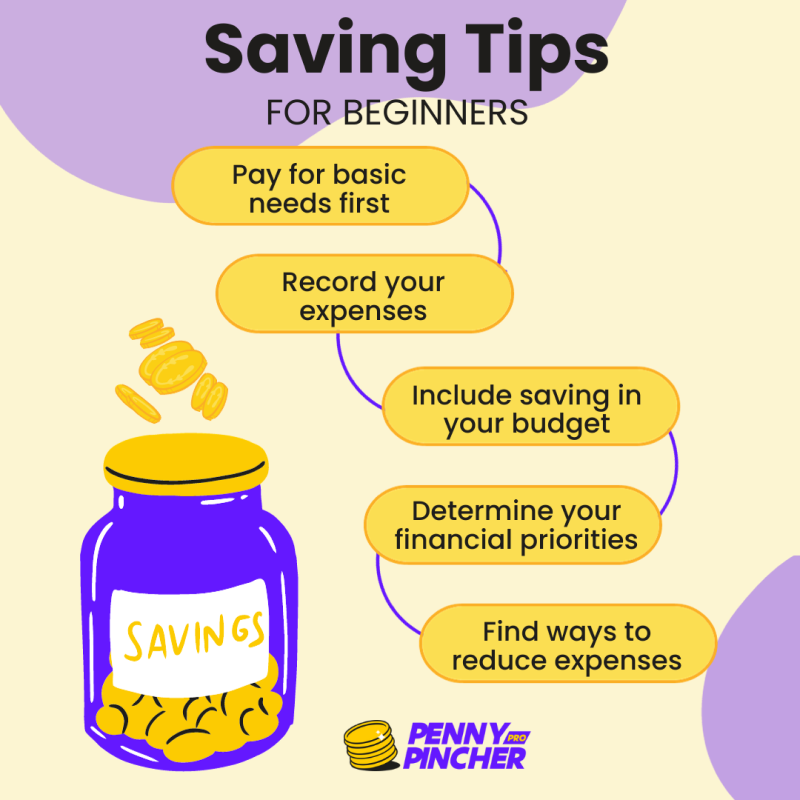Future You Needs This Now: Your Guide to Crushing Savings in Your 20s
People who start saving early in life put themselves on a path to financial resilience, which gives them the courage to face the uncertainties of life. Knowing how much should you save in your 20s to help battle rainy days is essential. Although predicting the future is not entirely in our control, having an emergency fund simplifies things.

Life is full of surprises. Knowing how much should you save in your 20s to help battle rainy days is essential. Although predicting the future is not entirely in our control, having an emergency fund simplifies things. The earlier in life an individual begins to save, the better they will be set financially in the years to come.
The words “save money for a rainy day” couldn’t have been more valid today. While your 20s may seem like an era of partying and having fun, the importance of making sound financial decisions should be considered. Making a few wise decisions early on can pave the way for a comfortable and secure standard of life.
To better understand saving patterns in America, GOBankingRates surveyed 1000 Americans in 2023; 32.9% had less than $100 in savings in their bank accounts. This reflects that people need to know how to manage money in their 20s.
Budgeting is a Life-Saving Skill
Budgeting refers to keeping a record of the money you are spending and what you are earning. The goal is to remain in a deficit so our expenses stay within our allowance. One of the primary reasons why you should save so much in your 20s is so that debt can be avoided later in life.
Allocate your resources smartly to avoid spending more than you have. This helps you avoid loans and credit card debt, ensuring long-term financial stability.
By tracking how much you should save in your 20s, you don’t end up impulse buying anything you lay your eyes on. By default, you prioritize essential expenses. In addition, a well-thought-out budget forces you to set aside a chunk of your earnings on special purchases.
For example, if you want to buy a cellphone, allocate a specific portion of your budget. A well-disciplined approach gives the liberty to make important buys without relying on credit. To double savings and budgeting in your 20s, use online coupons available on Penny Pincher Pro.
Saving money early on acts as a safety net for retirement. Compound earning growth is a key benefit of retirement plans that allows you to accumulate more interest on already-made interest. The sooner you know how much should you save in your 20s and maintain a consistent approach, the compound interest can have a greater yield on your savings.
How to Budget: The 50/30/20 Rule
If saving money seems intimidating and you are still trying to figure out how much should you save in your 20s, here is a simplified approach to provide you with a breakthrough. The 50/30/20 is one of the best financial tips for 20s, and here’s how to do it. So, how does it work?
After deducting taxes, allot 50% of your budget to your needs, including rent, groceries, transportation, insurance, and minimum loan payments. This should give a fair idea of how much you should save in your 20s. Sometimes, your “needs” budget can exceed, but don’t sweat.
Differentiate between your wants and needs and allocate the next 30% for recreational purposes, which includes dining out, taking a trip, or an occasional retail therapy session. Penny Pinchers is here to push your savings further by offering you a buffet of discount vouchers.
For example, use an online coupon for a lavish shopping spree. However, if you are in debt, we advise you to cut back on unnecessary expenditures until you improve your credit score.
Save the remaining 20% for savings and debt payments. Set aside 20% of your after-tax income for debt repayment, savings for the future, and emergency funds. Balance your financial landscape by alternating between building savings and reading debts.
10 Best Financial Tips on How Much Should You Save in Your 20s

Remember, financial self-care is just as crucial as other self-care methods. While you burn the midnight oil by taking extra shifts to earn money, spending it is as easy as ABC. Young adults are notorious for their reckless spending habits, especially impulse buying, which shows an absence of self-control.
Your 20s are the prime time to get your financial act together, as you are young and energetic. Navigating your finances in your early 20s sets the stage for your economic well-being later.
1. Don’t Sleep on Couponing
A foolproof way to indulge yet spend smartly is couponing. Let’s say you want to go on vacation without breaking the bank. Visit Penncy Pinchers, and you will land on a treasure chest of coupons ready for use. Penny Pincher has coupons in stores for everything from eateries to buying phones.
Only shop for something online after looking for a coupon at first. In this day and age, being frugal is also a skill. Using coupons is a breeze, but be mindful of the expiry date.
2. Dont Overspend
Boredom, peer pressure, and impulse buying cultivate negative habits such as overspending that not only hurts your bank account but also lets your finances control you, which should be the other way around.
When you indulge in overspending, you heavily rely on credit cards with interest rates. If you do not buckle up on your overspending habits, a constant worry lurks about paying off your loans.
3. Start Investing In Crypto Currency
Hop on the bandwagon of digital currency while you still can because it is the future. Since it is limited, governments can’t intervene and control its value, making it safe from taxes.
Platforms like Biance help you set up online wallets with minimum fees. You can fund your cryptocurrency account by connecting your bank account and paying with a debit or credit card.
4. Start an Emergency Fund
An emergency fund is a cash stash stored away for a rainy day. This cash reserve acts as a safety net to catch you in the middle of an emergency. These funds are intended for actual, pressing expenses, such as covering an unexpected medical cost or paying rent if your income is cut off.
An immense advantage of having an emergency fund is that it frees you from using credit card debt, borrowing money, or drawing down the equity in your house to pay for the basics of life.
5. Build a Budget
The key to being financially self-aware is to budget. Start by keeping track of your expenses, even a $5 cup of coffee. Once your costs are laid out, factorize them from most important to least important.
Your top priority should be paying off bills, utilities, debts, and recreational activities below the scale. By examining your spending patterns, you are set on financial independence.
6. Consider Buying Health Insurance
Health insurance guarantees a level of economic safety in times of dire illness. It covers doctors’ fees, room charges, diagnostic fees, etc. But there are intelligent ways to go about buying.
Look at the federal and state plans listed on the Health Insurance Marketplace. Compare the prices of different health insurance providers and pick the lowest one. Look into your alternatives to see whether your income qualifies you for a subsidy.
7. Say No to Impulse Purchases
We unconsciously impulse buy to relieve ourselves of stress, which can cause mayhem for our wallets. We can shop from the convenience of our homes almost all the time.
This makes restraining impulsive spending behaviors even more difficult. A great tip would be to leave the item in your cart for a day. Work it within your budget if you still want it after 24 hours.
8. Avoid Paying with Credit
Credit cards are tempting, easily resulting in overspending. Buying now and paying later might be convenient, but it builds up a debt that comes with interest.
This makes your initial purchase more expensive and contributes to a bad credit score. Although credit cards are crucial to your financial stability, how you utilize them will affect your well-being. A general guideline is if you cannot pay off the expense by the end of the month, do not use credit for it.
9. Know Your Taxes
Knowing your taxes entails understanding the numerous tax components, including income tax, credits, and deductions. Awareness of the tax implications of different financial decisions, like investments or major purchases, empowers individuals to make informed choices.
To sum up, having a thorough grasp of taxes is crucial for financial literacy and helps with prudent financial planning and management.
10. Build and Maintain a Good Credit Score
Start by checking your credit reports. Monitor your credit use responsibly and be consistent with your payments. Limit credit injuries and negotiate interest rates, ensuring a solid credit history and opening doors to favorable financial opportunities.
Budgeting is a fundamental skill that sets the tone for financial success in our later stages of life. Our 20s are filled with unique challenges and opportunities, and the importance of saving shouldn’t be undermined.
People who start saving early in life put themselves on a path to financial resilience, which gives them the courage to face the uncertainties of life.






















